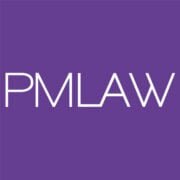Best Faith-Based Law Lawyers in São Bernardo do Campo
Share your needs with us, get contacted by law firms.
Free. Takes 2 min.
List of the best lawyers in São Bernardo do Campo, Brazil
About Faith-Based Law in São Bernardo do Campo, Brazil
Faith-Based Law in São Bernardo do Campo refers to the legal framework governing religious organizations, their rights, duties, and interactions with the government and the public. This area of law ensures the protection of religious freedom as guaranteed by the Brazilian Constitution while also regulating how religious groups organize, acquire property, manage finances, and conduct activities. Faith-Based Law covers churches, temples, synagogues, mosques, and other spiritual institutions, providing guidelines on establishing legal entities, tax exemptions, and compliance with municipal and federal regulations.
Why You May Need a Lawyer
There are many situations in which individuals or organizations may need legal assistance regarding Faith-Based Law in São Bernardo do Campo. If you are founding a new religious institution, legal guidance is crucial for proper registration and compliance. Existing religious organizations may require legal help to navigate tax exemptions, property acquisitions, or employment matters. Disputes between members, questions about religious education, protection of freedom of worship, or challenges by authorities can also necessitate expert legal advice. Additionally, with the evolving regulatory landscape, staying compliant with local and federal regulations is essential to avoid penalties or loss of privileges.
Local Laws Overview
The primary legal foundation for Faith-Based Law in São Bernardo do Campo is the Federal Constitution, which guarantees the freedom of religious practice. At the municipal level, there are specific rules concerning the zoning for religious buildings, noise regulations, and public event licensing. Religious organizations must register as legal entities (associations or religious organizations) with the Civil Registry of Legal Entities to be recognized. Proper registration allows them to access tax exemptions for assets and activities related to their institutional goals, under the guidelines set by local and federal tax authorities. São Bernardo do Campo also observes federal laws protecting anti-discrimination and upholding the secular character of the State while respecting religious autonomy.
Frequently Asked Questions
What is required to register a religious organization in São Bernardo do Campo?
You will need to draft a founding charter, obtain signatures of founding members, establish bylaws, and register your organization with the Civil Registry of Legal Entities. Legal assistance is helpful to ensure all documentation complies with requirements.
Do religious organizations automatically receive tax exemption?
While the Constitution provides for tax exemptions, your organization must follow the correct registration process and fulfill ongoing requirements, including proper accounting and exclusive use of assets for religious purposes, to maintain exemption status.
Can religious services be held in any type of building?
No, religious organizations must comply with municipal zoning laws. This includes securing appropriate licenses and ensuring the chosen location meets health, safety, and access standards.
How can a religious group acquire property in São Bernardo do Campo?
Registered religious legal entities can own property. The purchase must be made in the name of the legal entity, and all required registrations and taxes must be properly handled.
What if there is a dispute between members or leadership?
Internal disputes are typically addressed according to the organization's bylaws. If conflicts persist, mediation or legal action may be necessary, and a specialized lawyer can help navigate the process.
What laws protect my religious practice in São Bernardo do Campo?
The Federal Constitution ensures freedom of belief and religious practice. Local ordinances also protect against discrimination and guarantee the right to worship, subject to public order and safety regulations.
Are religious organizations allowed to operate schools?
Yes, but they must comply with both education regulations and faith-based law. This involves licensing, curriculum standards, and sometimes special requirements for religious instruction.
Can faith-based organizations hire employees?
Yes. Employment must be compliant with Brazilian labor laws, and contracts should clarify specific roles, obligations, and any religious requirements for staff. Legal guidance helps prevent future disputes.
Is it possible to lose tax exemption status?
Yes. If a religious organization fails to comply with legal, accounting, or operational requirements, tax exemption can be revoked. Regular legal review helps maintain compliance.
How can religious organizations address issues with noisy events or public gatherings?
Every event must follow municipal rules on noise and public safety. Permits may be necessary for large gatherings, and organizations should coordinate with authorities to prevent sanctions or conflicts with neighbors.
Additional Resources
Those seeking help in Faith-Based Law in São Bernardo do Campo can consult the following:
- Municipal Civil Registry of Legal Entities
- Brazilian Federal Revenue Service (Receita Federal)
- São Bernardo do Campo City Hall (Prefeitura Municipal)
- Brazilian Bar Association, São Paulo Section (OAB-SP), for legal professional guidance
- Local associations of religious organizations for peer support
- Public Defender’s Office, for low-income individuals or organizations seeking legal aid
Next Steps
If you need legal help with a faith-based matter in São Bernardo do Campo, begin by gathering all relevant documents and information about your religious organization or issue. Schedule a consultation with a lawyer who specializes in Faith-Based Law for an initial assessment. Be prepared to discuss your goals and any challenges faced. If cost is a concern, explore assistance from the Public Defender’s Office. Staying proactive, maintaining thorough records, and adhering to legal requirements will help ensure smooth operations and protection of your organization’s rights.
Lawzana helps you find the best lawyers and law firms in São Bernardo do Campo through a curated and pre-screened list of qualified legal professionals. Our platform offers rankings and detailed profiles of attorneys and law firms, allowing you to compare based on practice areas, including Faith-Based Law, experience, and client feedback.
Each profile includes a description of the firm's areas of practice, client reviews, team members and partners, year of establishment, spoken languages, office locations, contact information, social media presence, and any published articles or resources. Most firms on our platform speak English and are experienced in both local and international legal matters.
Get a quote from top-rated law firms in São Bernardo do Campo, Brazil — quickly, securely, and without unnecessary hassle.
Disclaimer:
The information provided on this page is for general informational purposes only and does not constitute legal advice. While we strive to ensure the accuracy and relevance of the content, legal information may change over time, and interpretations of the law can vary. You should always consult with a qualified legal professional for advice specific to your situation.
We disclaim all liability for actions taken or not taken based on the content of this page. If you believe any information is incorrect or outdated, please contact us, and we will review and update it where appropriate.










